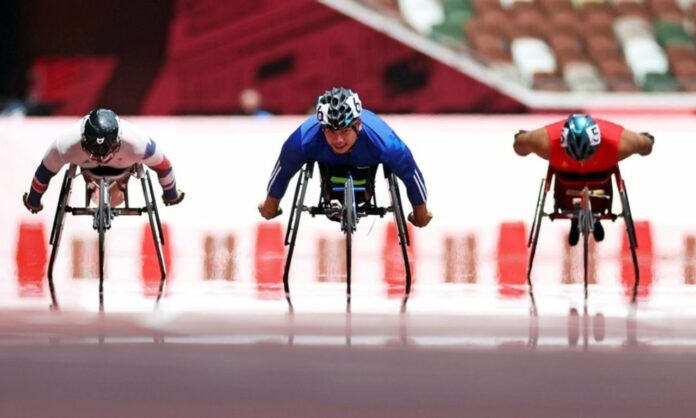Inclusive sports initiatives are fostering a diverse and equal athletic community. These programs are designed to ensure that all athletes, regardless of their background, can participate and excel in sports. This article delves into various efforts and achievements within North Carolina’s athletic community, highlighting significant stats, records, names, and initiatives without omission.
Table of Contents
The Importance of Inclusive Sports Programs
Inclusive sports programs play a crucial role in enhancing community engagement. For instance, the Triangle Diversity Council organizes annual sports events that bring together athletes from diverse backgrounds. These events promote physical activity and foster a sense of community and belonging among participants.
Programs like the Carolina Youth Leadership Academy use sports as a tool to build character and leadership skills in young athletes. By participating in diverse teams, athletes learn the value of teamwork, respect, and perseverance, which are essential qualities both on and off the field.
Notable Inclusive Sports Initiatives
Special Olympics North Carolina (SONC) is one of the leading organizations promoting inclusive sports. With over 40,000 registered athletes, SONC offers year-round sports training and athletic competitions for children and adults with intellectual disabilities. The organization provides opportunities in various sports, including basketball, swimming, and track and field.
The Triangle Unified Sports League partners athletes with and without intellectual disabilities on the same team. This initiative encourages social inclusion through shared sports experiences. The league has seen significant participation, with over 500 athletes and partners engaging in sports like soccer, volleyball, and flag football.
Success Stories of Inclusion
Lauren Jones, a standout track, and field athlete from Raleigh, has been a trailblazer in promoting gender equality in sports. Competing in state championships, Jones has set records in the 100m and 200m sprints. Her success has inspired many young female athletes to pursue their dreams in athletics.
Unified sports teams in high schools have gained popularity, with more than 100 schools participating in various unified sports events. These teams bring together students with and without disabilities, fostering an inclusive environment and promoting mutual respect among teammates.
Challenges and Opportunities in Promoting Inclusive Sports
One of the significant challenges in promoting inclusive sports is overcoming socioeconomic barriers. Many families cannot afford the costs associated with sports participation. Organizations like the Carolina Youth Sports Foundation provide financial assistance to ensure that all children can participate in sports, regardless of their economic background.
Cultural differences can sometimes hinder participation in sports. The North Carolina Sports Diversity Council works to address these issues by providing culturally sensitive training for coaches and creating programs that respect and celebrate diverse cultural backgrounds. Their efforts have led to increased participation from minority communities.
The Role of Technology in Enhancing Inclusion
During the COVID-19 pandemic, many inclusive sports programs turned to virtual training to keep athletes engaged. Organizations like Special Olympics developed online training sessions and virtual competitions. These programs kept athletes active and provided a sense of continuity and community during challenging times.
Advancements in technology have led to the development of adaptive sports equipment, playing sports is more accessible for athletes with disabilities. For example, the North Carolina Adaptive Sports Center offers specialized equipment such as sit-skis and adaptive bikes, enabling athletes to participate in sports that were previously inaccessible to them.
Promoting Inclusion through Policy and Advocacy
The state has made significant strides in promoting inclusive sports through legislative support. The Inclusive Sports Act, passed in 2020, mandates that all public schools provide equal opportunities for students with disabilities to participate in sports. This legislation has been a game-changer, ensuring that inclusive sports are a priority at all educational levels.
Non-profit organizations play a crucial role in advocating for inclusive sports. Groups like the North Carolina Inclusive Sports Alliance lobby for policies that support diversity and inclusion in athletics. Their advocacy efforts have led to increased funding and resources for inclusive sports programs across the state.
With the Paralympics coming up in Paris 2024 all these non-traditional sports come into view. All the athletes representing their respective countries will have center stage at the most important competition in the world. And to increase the excitement Caesars Sportsbook in North Carolina is running a special promo code for this event. This integration can add an element of excitement and engagement for sports enthusiasts, encouraging broader participation.
Future Directions for Inclusive Sports in North Carolina
The Tar Heel State is committed to expanding its inclusive sports programs to offer more opportunities for all athletes. Plans include introducing new sports like wheelchair rugby and blind soccer. These additions will cater to diverse interests and ensure that all individuals can find a program that suits their athletic aspirations.
Investing in support services is another priority. The state plans to enhance its sports medicine and mental health resources to better support all athletes. These improvements will ensure that athletes receive comprehensive care, enabling them to perform at their best both on and off the field.
Inclusive sports initiatives are making significant strides in promoting diversity and equality. From Special Olympics North Carolina to Unified Sports Leagues, these programs provide valuable opportunities for all athletes. As the “Old State” continues to prioritize inclusive sports, the focus remains on expanding program offerings and enhancing support services. Embracing these goals will lead to continued success and a vibrant, inclusive athletic culture that benefits everyone involved. The future of inclusive sports in North Carolina is bright, with the potential to inspire and empower athletes for generations to come.

